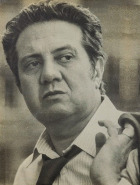

Placing Mário Soares within Portuguese historiography is a complex task that cannot be fully explored here. It is undeniable that the influence of Republican historiography, Seara Nova , and, in part, Vitorino Magalhães Godinho, permeates his work. His family environment, education, and involvement in the opposition to the Estado Novo also undoubtedly shaped his historical writing, both in terms of the themes he chose and the critical, problematising approach he employed. This is particularly evident during his time at the Faculty of Arts in Lisbon, where he alternated between historical research and political activism. These two dimensions were intensely intertwined, allowing us to assert that Soares’ studies of the past were, to a large extent, driven by the issues of his own time.
Later, through contact with other historians—both Portuguese and foreign (particularly French)—there is a discernible alignment with the Annales school. Introduced to this approach by Vitorino Magalhães Godinho, his time in France brought him into contact with renowned historians. His narratives primarily rested on political and legal perspectives, without neglecting social and economic aspects, thereby fostering a more comprehensive analysis and a “multidisciplinary dialogue” across the various fields of the humanities to better understand the past as a whole (Soares, “Olhar o passado com os olhos do futuro” [Looking at the Past with the Eyes of the Future], 1987, p. 53). Rather than interpreting events as spontaneous, he situated them within their spatial and temporal contexts. For instance, he argued that the Portuguese Discoveries were possible because of pre-existing knowledge and techniques inherited through contact with other civilisations, which were gradually refined over time (Soares, “Uma aventura…” [An Adventure...], 1988, p. 167).
However, his post-1974 speeches also reveal a tendency to exalt the Portuguese people across time. While this is easily associated with political rhetoric, it reflects a perspective that identifies enduring traits among the Portuguese and a clear connection with their historical predecessors. This suggests a collective identity and recognition of a shared past, which requires continuation while adapting to global transformations—once again demonstrating the prospective dimension of history.
This work is financed by national funds through FCT - Foundation for Science and Technology, I.P, in the scope of the projects UIDB/04311/2020 and UIDP/04311/2020.
